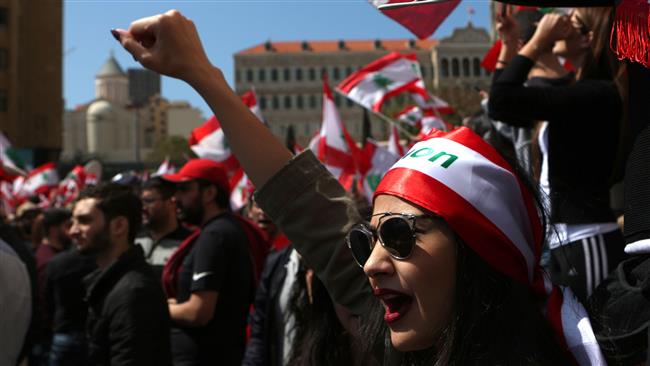Thousands flock to Beirut streets to protest tax hikes
YemenExtra,19 March,2017
housands of people have taken to the streets in the Lebanese capital, Beirut, to protest against plans by the government to increase taxes.
People flocked to Beirut’s city center on Sunday to protest at the approval of some tax hikes by the parliament and other plans for increasing over a dozen tax rates.
The angry protesters pelted Lebanese Prime Minister Sa’ad Hariri’s car with water bottles as he tried to persuade people that his cabinet would do its best to make up for the hikes through wage increases.
The planned hikes, proposed for Lebanon’s next annual budget, have sparked several small-scale protests in Beirut and other cities over the past days. The protesters say the hikes would unfairly affect the working class, urging the government to concentrate on fighting corruption rather than filling its coffers with taxpayers’ money.
Hariri, shielded by bodyguards to protect him against falling bottles, vowed that he would continue the fight against corruption.
“It’s true there is waste and corruption in the country, but we will fight it,” he said, adding “The road will be long … and we will be by your side and will fight corruption.”
However, protesters harried the premier with cries of “thief” and forced him to leave the area on foot. Some shouted through their megaphones that “We will not pay.” Others carried banners reading “Take your hands out of my pockets.”
Some political parties have supported the popular protests against tax hikes, including the Christian Kataeb party and the Progressive Socialist Party, led by Druze politician, Walid Jumblatt. Others, like the Lebanese resistance movement, Hezbollah, have voiced reservations about some of the increases.
The budget proposed by Hariri, if approved, would be Lebanon’s first in 12 years. The country’s parliament is also functioning under an extended mandate, prompting more concerns that tax hikes are politically motivated.
The political bickering over the past years has pushed Lebanon into economic difficulties with many parts of the country suffering from daily power and water cuts. Protests erupted in Beirut in 2015 after people grew angry at the inability of the waste management sector to clear garbage that was piling up in some districts.

